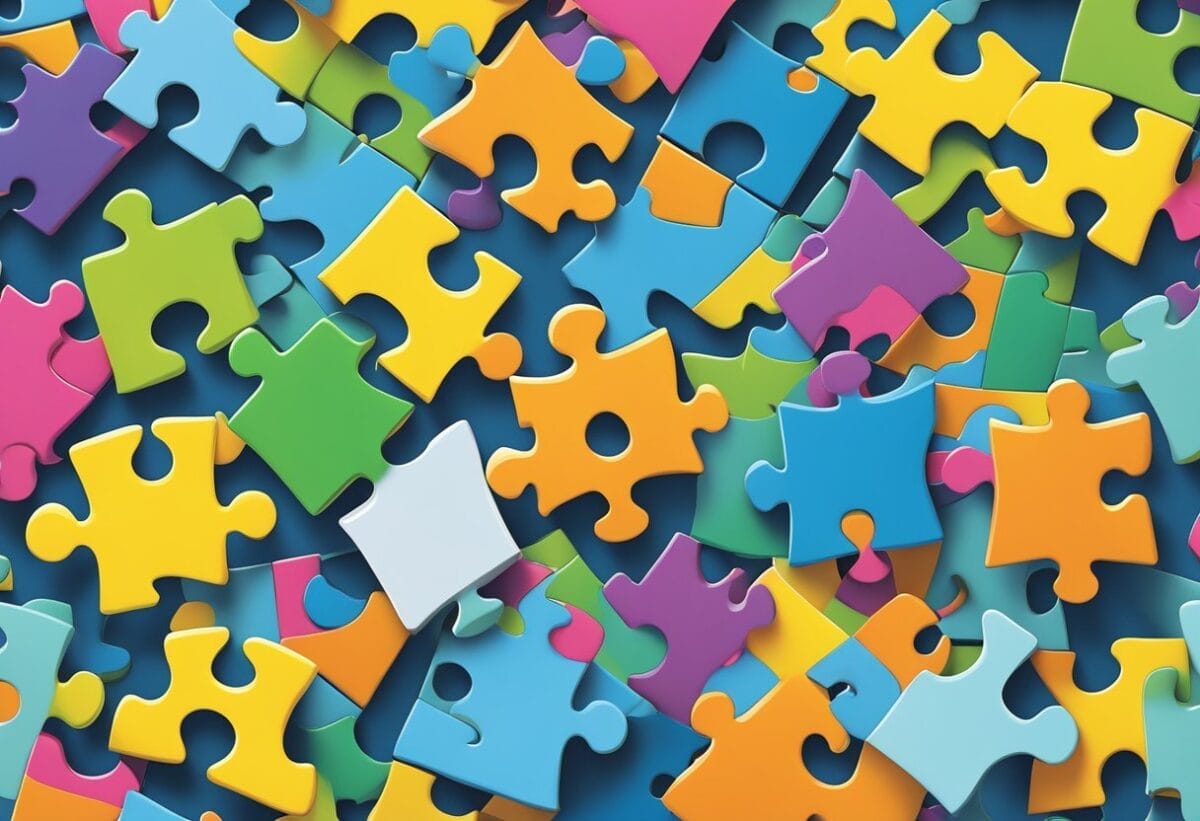Being a team player is crucial in most jobs today. Employers want to know if you can communicate well, resolve conflicts, and support your colleagues. When asked about your approach, it’s a chance to showcase your abilities. They’re looking for someone who can fit into their company culture and work smoothly with others.
Your answer should highlight your strengths in working with others and contributing to group success.

Think about specific examples from your past experiences that show your teamwork skills. Be ready to explain how you’ve contributed to successful group projects or helped resolve team challenges.
Teamwork and collaboration are key skills employers look for.
Key Takeaways
- Highlight your strengths in communication and collaboration
- Share specific examples of successful teamwork from your past
- Show how you contribute to a positive and productive team environment
Why Do Employers Ask ‘What Is Your Approach to Teamwork and Collaboration?’ During an Interview
Employers ask this question to gauge your interpersonal skills. They want to know how well you work with others. Your answer helps them decide if you’ll fit into their team culture. Your answer reveals your communication style. It shows how you’ll interact with colleagues daily. Teamwork is crucial in most jobs. Companies need employees who can cooperate effectively. Your approach to collaboration shows how you’ll contribute to group projects.
There are many reason why your interviewer ask you this questions, and here are some of the most common reasons:
- Employers use this to predict how you’ll handle workplace relationships. Respect for coworkers is a key factor employers look for.
- They want to see that you value others’ ideas and perspectives. This question helps them assess your level of respect.
- Employers want to know you can handle conflicts gracefully. They’re interested in how you communicate and solve problems with others.
This question also helps employers evaluate your leadership potential. They want to see if you can guide a team when needed. Your approach to teamwork can indicate your ability to take charge.
Common Variations of ‘What Is Your Approach to Teamwork and Collaboration?’

Interviewers often ask about teamwork in different ways. Here are some common variations you might hear:
- “Tell me about a time you worked well in a team.”
- “How do you handle conflicts in a team setting?”
- “What role do you usually take in group projects?”
These questions aim to understand your teamwork skills. They want to know how you collaborate with others to achieve goals.
You might also encounter questions like:
- “How do you build rapport with team members?”
- “Describe a successful team project you were part of.”
- “What’s your strategy for effective communication in a team?”
These ask about your interpersonal skills and how you contribute to team success. Be ready to share specific examples of your teamwork skills in action.
How to Answer ‘What Is Your Approach to Teamwork and Collaboration?’

Being ready to answer this common interview question can set you apart. Here’s a step-by-step approach to craft a strong response that showcases your teamwork skills and collaborative mindset.
Step 1: Talk About Your Communication Skills
Start by highlighting your communication skills. Explain how you listen actively and share ideas clearly. Give an example of a time you used effective communication to solve a problem or improve a project.
Mention how you adapt your communication style to different team members. This shows your flexibility and empathy.
Emphasize your openness to feedback. Describe how you view constructive criticism as a chance to grow and improve your work.
Step 2: Focus on What You Can Contribute
Focus on your ability to contribute to a positive team environment. Talk about how you support your colleagues and celebrate their successes.
Describe ways you help build trust within a team. This could include being reliable, meeting deadlines, and following through on commitments.
Highlight your work ethic and how it benefits the team. Give an example of going above and beyond to support team goals.
Step 3: Be Objective
Discuss your approach to conflict resolution. Explain how you address disagreements professionally and constructively.
Share a specific instance where you helped resolve a team conflict. Describe the steps you took and the positive outcome.
Talk about how you stay calm under pressure and help keep the team focused on solutions rather than problems.
Step 4: Highly Your Ability To Work With Others
Highlight your ability to collaborate across different departments or with diverse groups. Explain how you value different perspectives and integrate various ideas.
Describe a project where you worked with people from different backgrounds or areas of expertise. Share how this diversity led to better results.
Mention any tools or technologies you’ve used to enhance collaboration, especially in remote or hybrid work settings.
Step 5: Show Your Commitment
Wrap up by discussing your commitment to continuous improvement in teamwork. Share how you seek out opportunities to enhance your collaborative skills.
Mention any relevant training or workshops you’ve attended on team building or leadership. Explain how you apply what you’ve learned in your daily work.
End with a brief statement about your enthusiasm for teamwork and how it aligns with the company’s values or goals.
Best Example Answers to ‘What Is Your Approach to Teamwork and Collaboration?’

Strong teamwork answers focus on your skills, experiences, and specific examples. They show how you contribute to group success and handle challenges. Here are sample responses for different career stages and situations.
Example Answer For a Recent Graduate
“I believe teamwork is about open communication and supporting others. In my senior project, I worked with four classmates to develop a mobile app. We used a project management tool to divide tasks and track progress. I took the lead on user interface design and made sure to get input from everyone.
When we hit roadblocks, I organized quick team meetings to brainstorm solutions. This helped us stay on track and meet our deadline. I also offered to help teammates who were struggling with their parts.
Our project won the department’s innovation award. This experience taught me the value of clear goals, regular check-ins, and supporting each team member’s strengths.”
Example Answer For an Experienced Candidate
“My approach to teamwork is built on trust, clear communication, and flexibility. In my current role, I lead a team of six software developers. We use agile methods and daily stand-ups to stay aligned on goals and address issues quickly.
I encourage open dialogue and make sure everyone feels heard. When conflicts arise, I facilitate discussions to find common ground. Recently, we had differing opinions on a new feature. I organized a workshop where each person shared their perspective.
This led to a hybrid solution that improved our product. By valuing diverse viewpoints, we’ve increased our team’s innovation and productivity. Our project delivery rate has improved by 30% in the past year.”
Example Answer For Applying For a Leadership Position
“As a leader, I foster a collaborative environment where every team member can thrive. I start by clearly communicating our shared goals and expectations. Then, I make sure each person understands how their role contributes to our success.
I use a mix of regular check-ins and open-door policies to stay connected with my team. This helps me identify strengths, provide support, and address challenges early.
In my last role, I led a cross-functional team on a major product launch. I created a mentorship program pairing junior and senior members. This boosted skills sharing and team morale. We completed the project ahead of schedule and exceeded our sales targets by 25%.”
Example Answer For an Industry Change
“While I’m new to this industry, my teamwork skills are highly transferable. In my previous role in marketing, I collaborated with designers, copywriters, and data analysts on campaigns. I learned to speak the language of different specialties and bridge communication gaps.
I’m excited to apply these skills in a new context. For example, I’m adept at breaking down complex projects into manageable tasks. I also know how to facilitate brainstorming sessions that bring out everyone’s best ideas.
I’m a quick learner and eager to understand the unique dynamics of teams in this field. I believe my fresh perspective, combined with my collaboration skills, will bring value to your team.”
Example Answer For a Career Change
“My diverse background has shaped my collaborative approach. As a former teacher, I learned to adapt my communication style to different learning needs. This skill translates well to teamwork, where each member may have unique strengths and work styles.
I’m passionate about creating an inclusive environment where everyone feels valued. In my volunteer work, I coordinated a team of 20 people from various backgrounds for a community project. I used team-building exercises to help us bond and work effectively together.
Our diverse skills led to creative solutions we wouldn’t have found individually. I’m excited to bring this inclusive mindset to your team, fostering an environment where innovation thrives through collaboration.”
Join over 11,000+ achievers who are committed to achieving their career goals!






